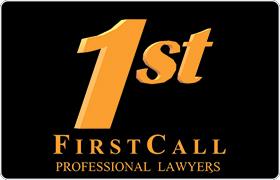Rancho Santa Fe White Collar Crime Lawyer, California
Sponsored Law Firm
-
 x
x

Click For More Info:
-
First Call Legal Services Corporation
530 Hacienda Dr Unit 101B Vista, CA 92081» view mapCriminal Defense Effective. Versatile. Decisive.
Our vision is to build strong, trust-based client relationships from our first handshake. Every challenge is an opportunity. You need the RIGHT PEOPLE for the job you want done.
760-690-3999
Jacob Prescott Austin
✓ VERIFIEDCriminal, Felony, Misdemeanor, DUI-DWI, White Collar Crime
Over the years I have worked on cases spanning many areas of law such as marriage dissolution issues, transferring trademarks, elder abuse, financial ... (more)
Jacob Prescott Austin
✓ VERIFIEDCriminal, Felony, Misdemeanor, DUI-DWI, White Collar Crime
Over the years I have worked on cases spanning many areas of law such as marriage dissolution issues, transferring trademarks, elder abuse, financial ... (more)
Juan Carlos Castaneda
Lawsuit & Dispute, International, Intellectual Property, White Collar Crime
Status: In Good Standing Licensed: 19 Years
William Peter Daley
Litigation, White Collar Crime, Contract, Medical Malpractice
Status: In Good Standing
Dorn Graham Bishop
Litigation, International Intellectual Property, White Collar Crime, Insurance
Status: In Good Standing
Alicia Marie Tschirhart
Real Estate, Securities Fraud , White Collar Crime
Status: In Good Standing Licensed: 13 Years
Samuel Eugene Spital
White Collar Crime, Constitutional Law, Administrative Law, Personal Injury
Status: In Good Standing
David Richard Silldorf
Litigation, Federal Appellate Practice, White Collar Crime, Civil Rights
Status: In Good Standing
 First Call Legal Services Vista, CA
First Call Legal Services Vista, CA Practice AreasExpertise
Practice AreasExpertise


